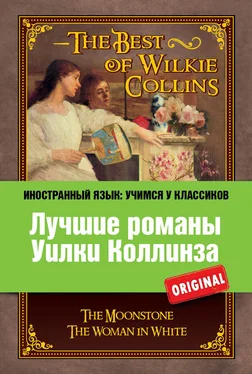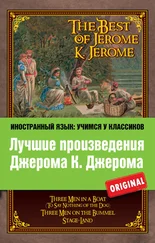Knight– a title of honour given as a reward for services to the state; lower in rank than baronet
Scripture– the Holy Scripture, the Bible
Genesis– the first book of the Old Testament
Daniel– the Old Testament prophet; ‘The Book of Daniel’ is a collection of stories about his life and visions.
Joseph– a biblical figure; the story of Joseph and his brothers is told in Genesis. Joseph was skillful in interpreting dreams.
monomania– the state of mind fixed on one idea or subject
Glasgow– the largest city in Scotland on the River Glide
whist– a card game for two pairs of players
ecarte– a card game, very popular in England in the 19th century
Bon voyage– Happy journey (French)
intercession– peacemaking
deuce– exclamation of annoyance
alternative– one of two things, ways, etc. that can be used instead of the other
Holborn– the neighbourhood of London northwest of the City of London; now a part of the borough of Camden.
stamina– energy and vigour that helps a person to survive or to work hard
paroxysm– a sudden attack of fear, pain, laughter, etc.
relics– a relic is: 1. smth. that belonged to a saint and became a sacred object after his death; 2. some object from the past kept as a memory
Liverpool– a city and port in the historic county of Lanca-shire in northwestern England
Honduras– Republic of Honduras, a country in Central America bordering Guatemala, Salvador and Nicaragua
Florence– a city in central Italy, northwest of Rome, a cul-tural, financial and commercial centre founded in the 1st cen-tury BC
Naples– a city in southern Italy, 190 km southeast of Rome; Mount Vesuvius, known for its volcanic activity, is located to the east of Naples.
Shetland shawl– a shawl made of soft fine wool manufac-tured in the Shetlands, a group of islands belonging to Scot-land
Hampshire– a historic county in south-central England on the English Channel; it comprises 11 districts plus Portmouth and Southampton.
the Tyrol– a mountainous state with Alpine nature in west-ern Austria
Southampton– a city and port on the English Channel in southern England, in the county of Hampshire; it was founded in 43 AD as a Roman settlement.
turret– a small tower at the corner of a building or a for-tress
York– a city in the county of Yorkshire, in northern England, founded as a Roman fortress in 71 AD
Clapham– a district in Wandsworth, the inner borough of London
Tiglath Pileser(1115 BC–1077 BC) – one of the greatest kings of Assyria; in Asia Minor he defeated the Phrygian in-vaders who were a real threat to the Middle East civilization.
Vienna– the capital of Austria; in 1558–1918 the capital of the Holy Roman Empire and then, the Austro-Hungarian Empire.
Queen Elizabeth I(1533–1603) – Queen of England (1558–1603); during her reign, England became a major European power.
George the Second(1683–1760) – King of Great Britain
allegorical– expressing ideas with the help of symbolic fig-ures; in a story, picture etc. ideas are symbolized by persons who are characters in it.
mania– a case of violent madness or enthusiasm
love-locks– in the 18th–19th centuries, a way of arranging woman’s hair
Henry the Eighth(1491–1547) – King of England (1509–1547) of the Reformation period; one of his six wives, Anne Boleyn, was the mother of Elizabeth I.
Pope Alexander the Sixth(1431–1503) – a representative of the Spanish branch of the Borgia family; he is known in the history of Church for his corruption, ambitions and immoral-ity.
Napoleon(1769–1821) – Napoleon I, emperor of France (1804–1815); an Italian by origin, born in Corsica, he became one the greatest figures in Western history.
pagoda– a religious building (usually with several stories) in Buddhism and Hinduism; Hinduism is one of the world’s major religions, a combination of traditional beliefs and philosophy of the peoples of India, first mentioned in the 2nd millennium BC
dog-cart– a high two-wheeled cart pulled by one horse
Nankeen– cotton cloth made of natural yellow cotton
morocco slippers– slippers of oriental design made of fine leather or fabric
Figaro– the main character of the famous opera ‘The Barber of Seville’ by Gioachino Rossini
St. Cecilia– a Roman martyr of the early church (3rd cen-tury); she is considered a patroness of music
bailiff– a landowner’s manager
the Dead Sea– a salt lake in Israel and Jordan; it is the low-est water basin of the Earth
English spleen– a state when a person’s spirit is low and subdued
epigram– a clever, witty and expressive saying
Coroners– a coroner is an official who investigates the cause of death if the circumstances of it seem unnatural
bon-bon– a kind of sweet
John Buhl– a typical Englishman; the English
Chatterton– Thomas Chatterton (1752–1770), a British ro-mantic poet of the 18th century
Sheridan– Richard Sheridan (1751–1816), a famous English playwright of Irish origin, the author of ‘The School for Scan-dal’ (1771)
Читать дальше
Конец ознакомительного отрывка
Купить книгу












